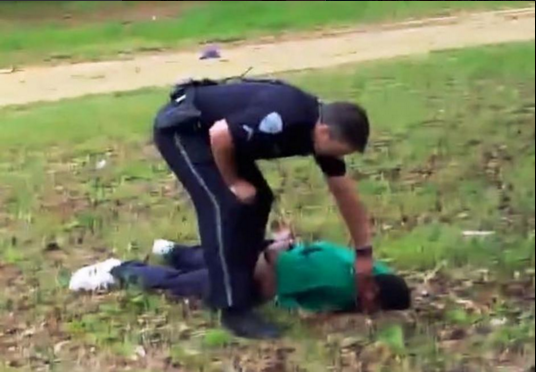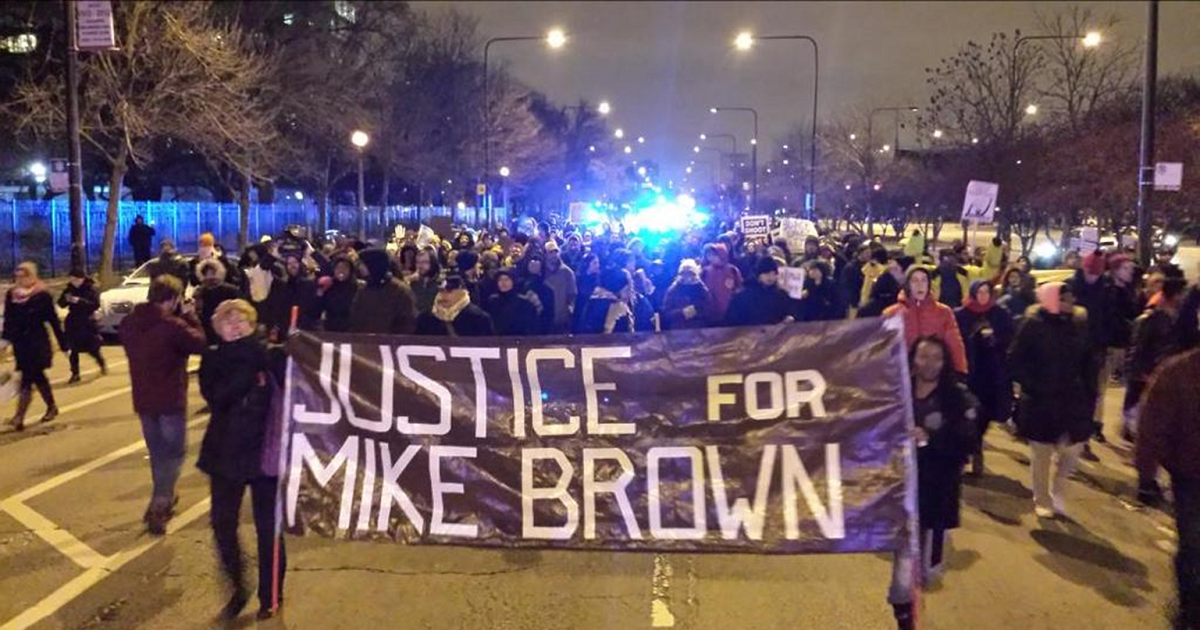The Reason You Keep Hearing the Same Defense in Police Shootings

By:
This week there were two big developments in separate cases regarding police shootings.
On Wednesday, prosecutors decided not to pursue charges against the officer who shot and killed Keith Lamont Scott in Charlotte, North Carolina.
This follows Tuesday's controversial testimony from the officer who shot Walter Scott in neighboring South Carolina.
 Twitter/Blkphoenix66
Twitter/Blkphoenix66
In both cases, officers used a similar defense: the officer was afraid for his life.
In the case of Keith Lamont Scott, a team of prosecutors decided that the September shooting was justified because there was evidence that Lamont Scott had a gun during the encounter, according to CNN. Keith Lamont Scott's family initially claimed that he did not own a gun, but the officers on the scene made statements that he had a gun in his hand and that's why Officer Brentley Vinson shot him.
Investigators say they found a gun at the scene with Keith Lamont Scott's DNA on it. Officers also claim he was waiving the gun around.
However, it's undisputed that Walter Scott was unarmed when he was shot in the back.
In South Carolina, Officer Michael Slager is on trial for the shooting death of Walter Scott in 2015. While on the stand Tuesday, Slager told the court that he felt "total fear" when Walter Scott allegedly reached for his stun gun, according to the Associated Press. He also testified that he "knew he was in trouble" and that he "was scared."
However, a viral video shows that Walter Scott was running away from Slager when he was shot in the back five times.
In a tweet that has since been shared thousands of times, New York state assemblyman Cory Provost slammed Slager's defense.
The tweet features a screen shot of Slager shooting Walter Scott in the back with the words "This is what 'fearing for my life' looks like" written over the screenshot.
So why would Slager say he was afraid for his life?
Maybe because other officers in controversial police shootings have successfully used that defense.
In Aug. 9, 2014, Officer Darren Wilson shot and killed unarmed 18-year-old Michael Brown in Ferguson, Missouri, but a grand jury decided not to bring charges against Wilson.
 Twitter.com/@ChipMitchell1 - twitter.com
Twitter.com/@ChipMitchell1 - twitter.com
Wilson said that he had a physical confrontation with Brown that forced him to fire because he feared for his life, CNN reported at the time. Wilson said that Brown punched him in the head while he was sitting in his police car.
"How do I survive?," Wilson said in an interview with ABC News. "I didn't know if I'd be able to survive another hit like that."
Less than three months later on Nov. 22, Officer Timothy Loehmann shot and killed 12-year-old Tamir Rice at a park in Cleveland. That shooting was recorded by a security camera.
Rice was holding an Airsoft gun that shot plastic pellets when Loehmann and his training officer showed up at the scene. Within seconds of arriving, Loehmann shot and killed Rice, and then told other officers that he had to shoot because Rice "reached for the gun," according to USA Today. A grand jury chose not to bring criminal charges against Loehmann, but the city of Cleveland reached a $6 million settlement with Rice's family.
Michael Avery, professor emeritus at Suffolk Law School and former president of the National Police Accountability Project said that an officer's fear for his or her life can be a legitimate defense, but the fear has to be "objectively reasonable."
"Just because an officer claims he feared for his life does not mean that a reasonable officer in his circumstances would have feared for his life," Avery told ATTN via email. "The question is whether the victim of the shooting can be proved to have been doing something that would cause a reasonable officer to fear for his life."
